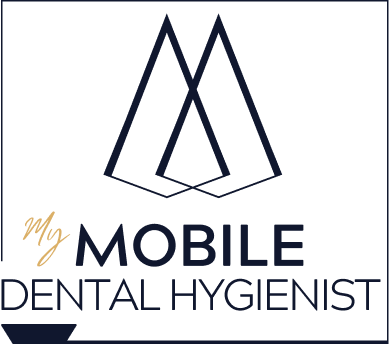Dental Hygiene Tips For Seniors
Helpful oral health care tips for seniors and their caregivers
Most dental health problems seniors face can be prevented with the right care.
We had the pleasure of visiting a retirement community this week. It was so fun connecting with all the residents and getting to know them a little. Tenille and I have been dental hygienists for 20 years and we wanted to take our passion for oral health and our experience and offer it in unique settings and to communities that getting to appointments can be challenging.
After our day in Rocky Ridge Retirement Community we thought we could share some information about seniors' oral care here to benefit more people.
Oral Care is about more than just the appearance of teeth. Oral health affects overall health so it is crucial for older adults to take good care of their teeth, mouth, and gums.
While people of all ages are at risk of dental issues such as cavities, there are certain conditions that seniors are more susceptible to, including:
Dry Mouth
This is when the mouth doesn’t produce enough saliva and this changes the acid levels in the mouth. This can affect swallowing, digestion, as well as the teeth and gums negatively. Seniors are particularly prone to this condition, especially if they are on certain medications.
Tooth and Root Decay
Seniors are not only at risk of tooth decay, but also decay of tooth roots and the jawbone. This is often caused by decreasing dexterity, a softer food diet, or dry mouth.
Periodontitis
Periodontitis is a gum infection that is often due to poor oral care causing a build-up of bacteria in the mouth. It can cause inflammation, pain, and even tooth loss.
Dental Hygiene Tips For Seniors
Although seniors are at a higher risk of developing certain oral conditions, the good news is that many of these dental health concerns are easily prevented and solved with the right dental care.
Here are some helpful tips:
Tip #1
Brush twice daily, floss at least once a day, and rinse with mouthwash as instructed by your dental provider to maintain dental health.
Tip #2
Consider using an electric toothbrush that will help you clean your teeth more effectively and clean the harder-to-reach parts of the mouth.
Tip #3
Know the warning signs that indicate you may have a problem with your teeth or gums, such as:
Tooth Sensitivity
Grinding
Pain
Mouth sore
Loose teeth
Difficulty swallowing, eating or quenching your thirst
Tip #4
Have professional dental care provided regularly
Tip #5
Maintain and take care of all dental appliances such as bridges or dentures.
Tip #6
Talk to your dental providers about any medications you’re taking, or any changes in your medication.
When Oral Care Becomes Difficult: How Caregivers Can Help
Most dental health problems seniors face can be prevented with the right care. Unfortunately, there are many reasons why elderly patients may not be able to maintain their oral health effectively.
This can include:
Decreased mobility
Impaired memory
Side effects of medication
The best way to protect their teeth in such cases is by having a caregiver who can help.
Caregivers can:
Help with brushing and flossing.
Encourage senior patients to brush/floss and use mouthwash.
Schedule and take elderly patients for their regular dental checkups and cleanings
This is where My Mobile Dental Hygienist can be of great value - we can come to their location so they do not have to find someone to take them to their appointments.
Contact My Mobile Dental Hygienist Today
To find out more about our comprehensive senior dental care services, and how our team can help you maintain healthy and beautiful teeth as you age. Contact our mobile dental hygiene clinic today at 403-988-1691 or email info@mmdh.ca


